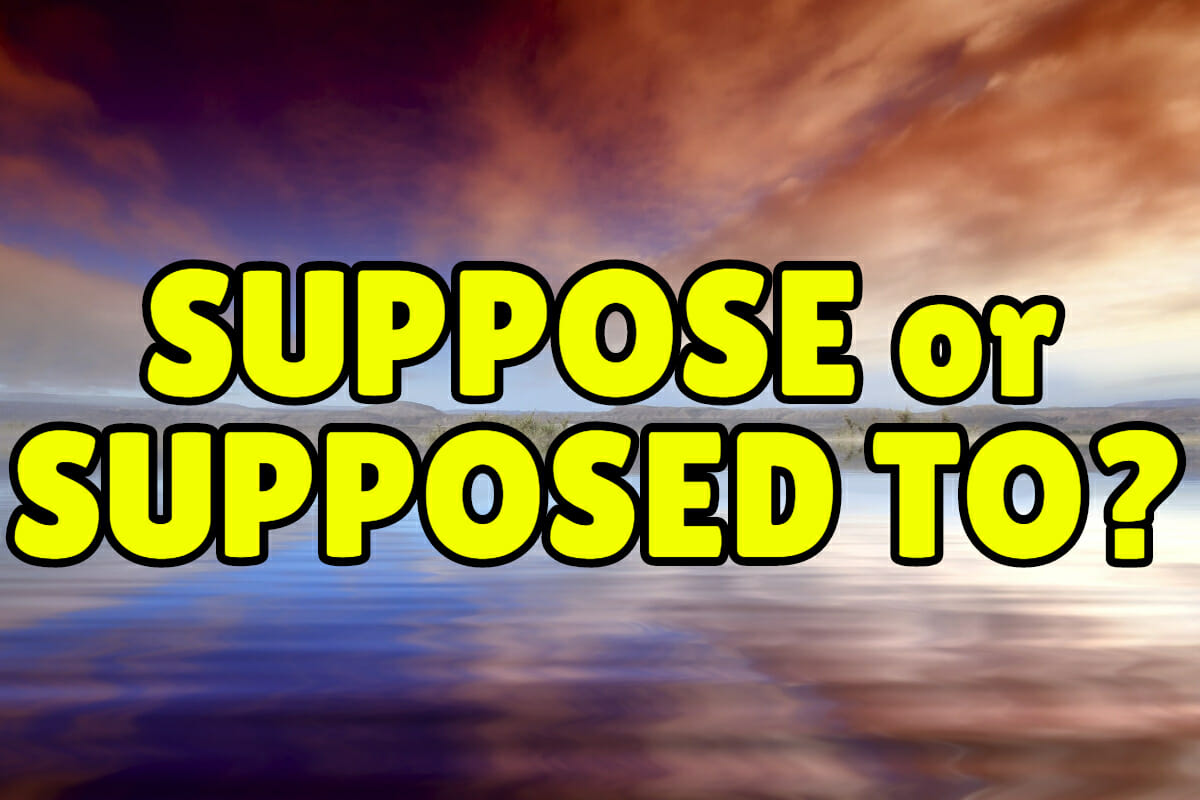
When to use suppose vs. supposed to Espresso English
from English Grammar Today Suggestions We use suppose, supposing and what if + present verb form to make suggestions about what might happen: A: What time shall we meet? B: Suppose we meet in the offices downstairs at four o'clock? A: That's perfect. I'll let the others know. Supposing I don't bring my car and you and I travel together.
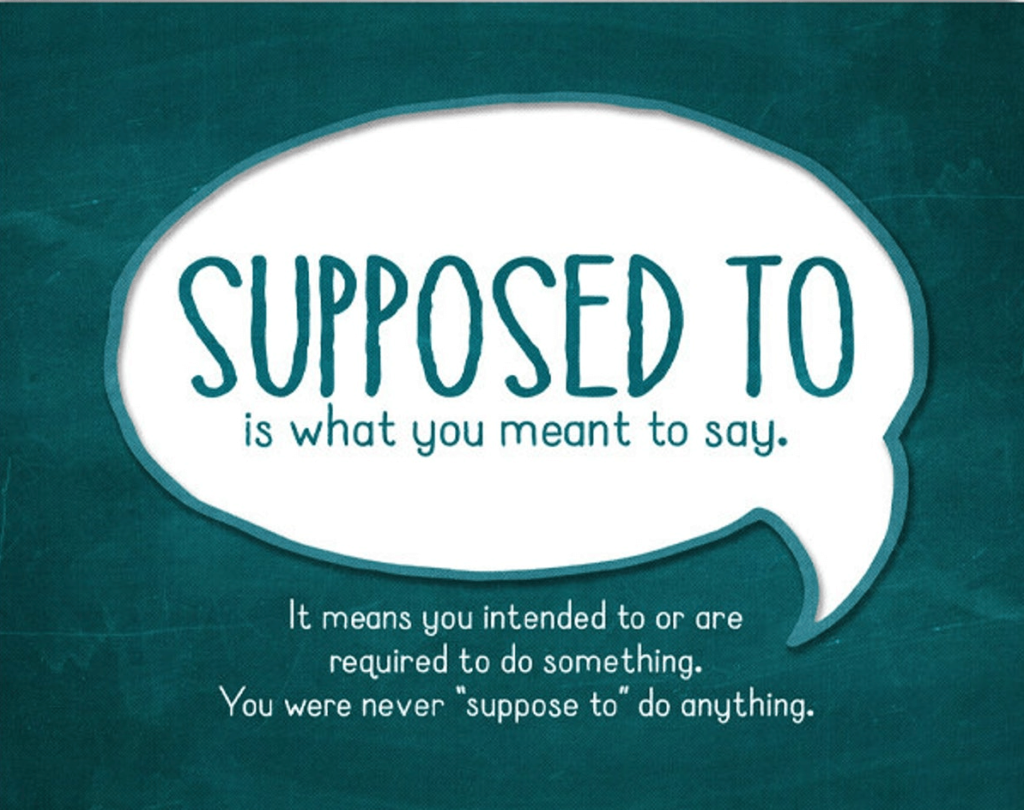
Common Confusing Words Suppose vs Supposed The Savvy Red Pen
suppose ( verb) Suppose is used to assume something is true without knowing for sure. Examples: I suppose you know the answer. You know everything! I suppose you could be right, but there's no way to check. She supposed her membership had expired. (That's why her swipe card didn't open the door.) be supposed to (expression, acts like a modal verb)

SUPPOSE SUPPOSING BE SUPPOSED TO IN ENGLISH GRAMMAR IN ENGLISH USES
Supposed to [with a D at the end] means expected to OR required to: "I was supposed to take out the garbage this morning, but I forgot.". - I was expected to take out the garbage. (SUPPOS ED) . " I was suppose to take out the garbage…" is incorrect. . Suppose is a verb - Supposed is an adjective. Many of my English blog post.
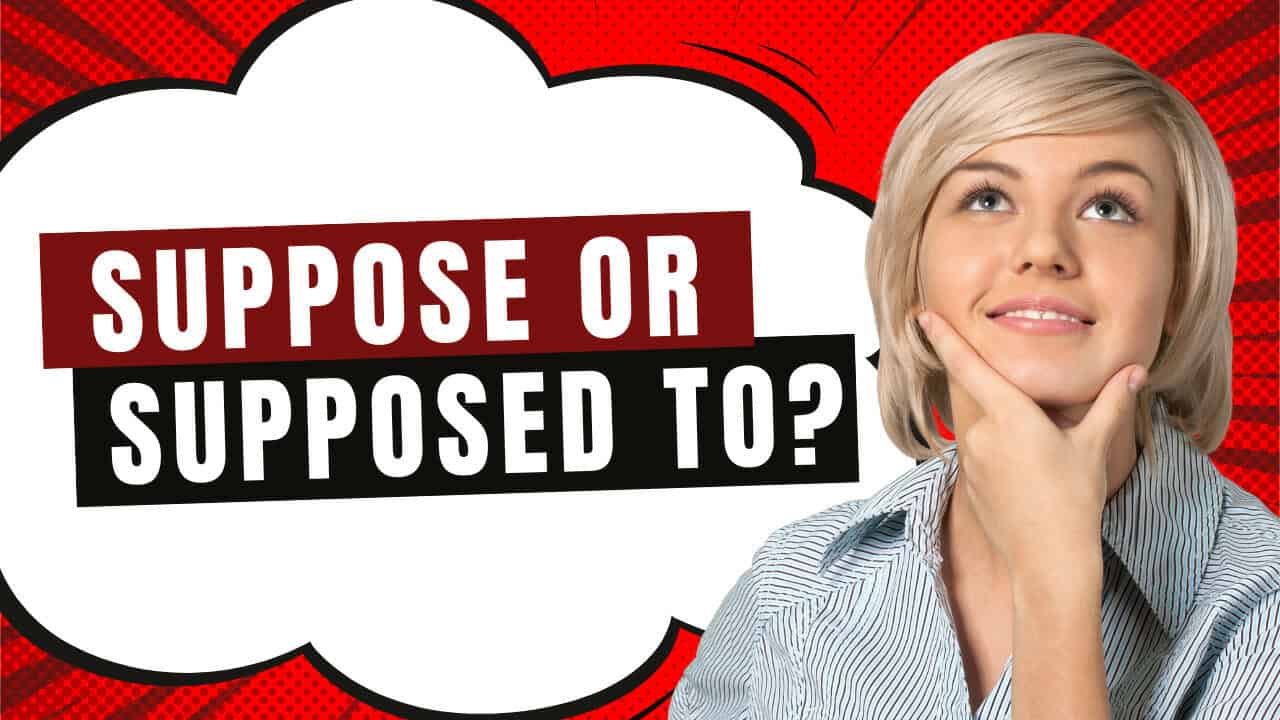
When to use suppose vs. supposed to Espresso English
'Supposed' Meaning Is It Suppose or Supposed? Lesson Summary Frequently Asked Questions Is it suppose or supposed? Suppose is abstract and implies the reason behind the action..
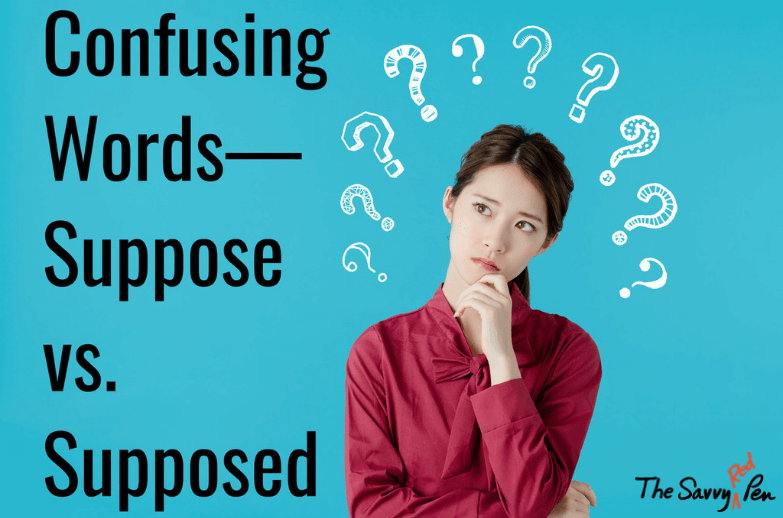
Common Confusing Words Suppose vs Supposed The Savvy Red Pen
It can also be used as a noun meaning something that is supposed or expected. The word "supposed" is the past tense and past participle form of the verb "suppose." It can also be used as an adjective meaning presumed or hypothetical. "Suppose" and "supposed" have slightly different meanings when used in context.

Suppose vs. Supposed English words, Learn english vocabulary, Learn
What does suppose mean? "Suppose" can be used as a verb to mean to assume to be true or real for the sake of argument or explanation. I suppose I could afford that if I had to. Suppose you win the lottery, what would you buy? For the sake of debate, she supposed the opponent was telling the truth.

Difference between SUPPOSE & SUPPOSED TO Confusing English Words
Suppose definition: to assume (something) for the sake of argument, as part of a proposition or theory, a problem set to be solved as an exercise, etc.. See examples of SUPPOSE used in a sentence.

Suppose and Supposed To Meaning English lesson VIDEO 2021
Suppose or supposed to? A student asked me about the difference - they really are quite confusing. Here's how to use suppose and supposed to correctly. How to pronounce "suppose" and "supposed to" First thing is that there's a pronunciation difference between suppose and supposed to.
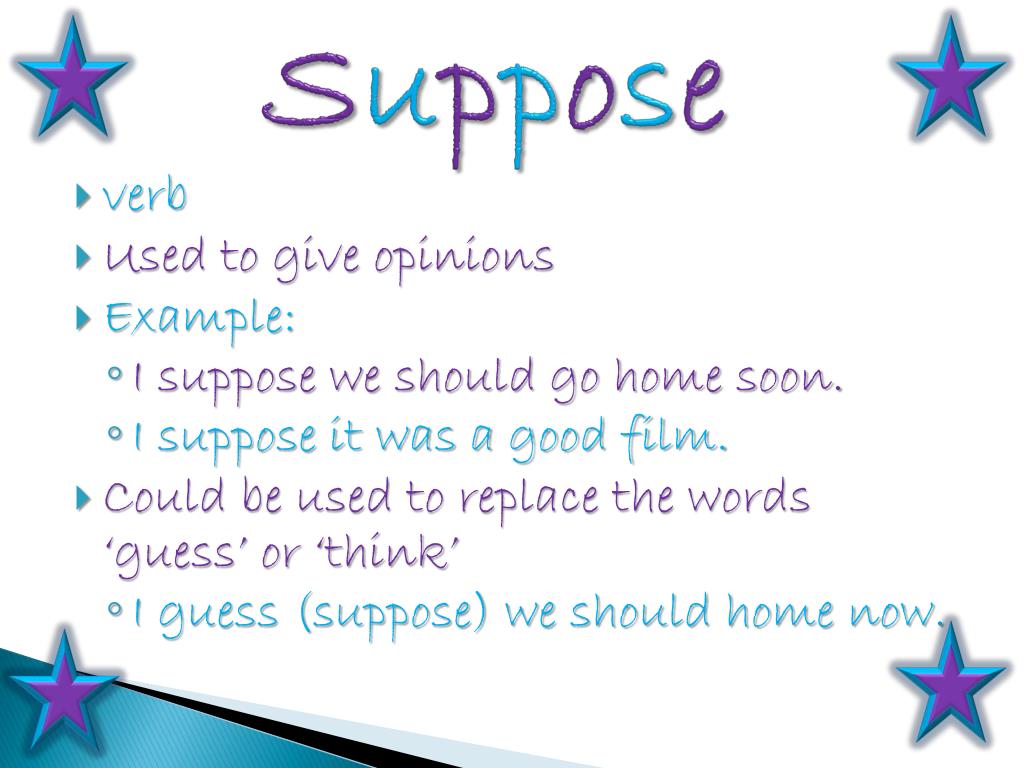
PPT Suppose vs. Supposed to PowerPoint Presentation, free download
Suppose is a word used as a verb meaning "to assume that something is the case on the basis of evidence or probability but without proof or certain knowledge." "NELSON: No good deed goes unpunished, I suppose" Journal Review "A Jewish 'Christmas': 'I suppose my mother had explained the cross-cultural situation to Santa Claus'" TheJournal.ie

Suppose OR Supposed to? (Examples, Pronunciation, Video) World
supposed; supposing Synonyms of suppose transitive verb 1 a : to lay down tentatively as a hypothesis, assumption, or proposal suppose a fire broke out suppose you bring the salad b (1) : to hold as an opinion : believe they supposed they were early (2) : to think probable or in keeping with the facts

Suppose OR Supposed to? (Examples, Pronunciation, Video) World
[intransitive, transitive] to think or believe that something is true or possible (based on the knowledge that you have) Getting a visa isn't as simple as you might suppose. Prices will go up, I suppose. suppose (that)… I don't suppose for a minute that he'll agree (= I'm sure that he won't).; It's reasonable to suppose that he left the note after he tried to call her.

use of "suppose" and "supposed to" in English sentences YouTube
Supposed (not the past-tense form of suppose) is an adjective that means generally assumed or believed but not necessarily so. As an adjective, it modifies a noun within a sentence. For example: The supposed theft occurred between 3 and 4 am, but the security cameras didn't pick anything up, making the report somewhat suspect.
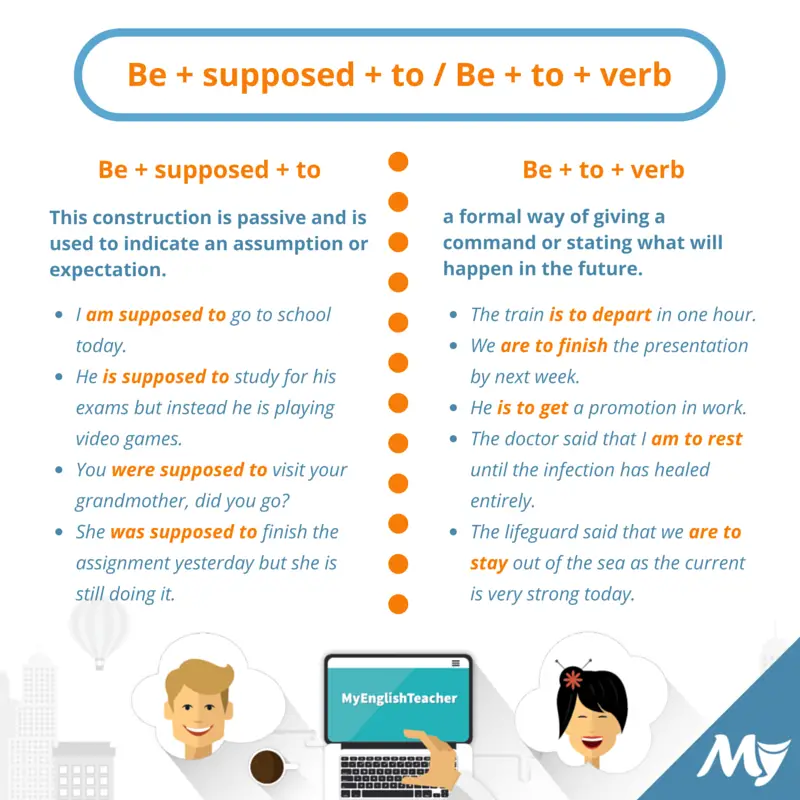
Examples of (Be + supposed + to) and (Be + to + verb
[In informal English we often say "I suppose" to mean "I assume" or "I guess."] In BrE, "I guess" is considered informal, "I suppose" neutral. ( en.oxforddictionaries.com/definition/guess ) Could be different in AmE. (Purely AmE dictionaries don't mark either word as informal - although the American edition of ODO does so in the case of "guess".)

Suppose vs. Be Supposed To English Vocabulary & Grammar Practice
be supposed. 1. a : to be expected to do something. They are supposed to arrive tomorrow. She was supposed to be here an hour ago. The movie was supposed to earn a lot of money at the box office, but it didn't. b : to be intended or expected to be (something) The party was supposed to be a surprise. c — used to show that you are angry or.

How to Use Suppose and Supposed To
suppose verb uk / səˈpəʊz / us / səˈpoʊz / suppose verb (THINK LIKELY) Add to word list A2 [ T ] to think that something is likely to be true: [ + (that) ] Dan didn't answer his phone, so I suppose (that) he's busy. He found it a lot more difficult to get a job than he supposed it would be. [ + (that) ] Do you suppose (that) Gillian will marry him?

SUPPOSE AND SUPPOSED TO IN ENGLISH in 2022 Going to work, Words, English
Several sources provide this tip: If you want to use the term as a verb, then choose "suppose" since both have an "e" in their spelling. Meanwhile, you should use "supposed" if you want an adjective because both words have a "d" in their spelling. I have to say, I've never thought of remembering the difference this way, but I.